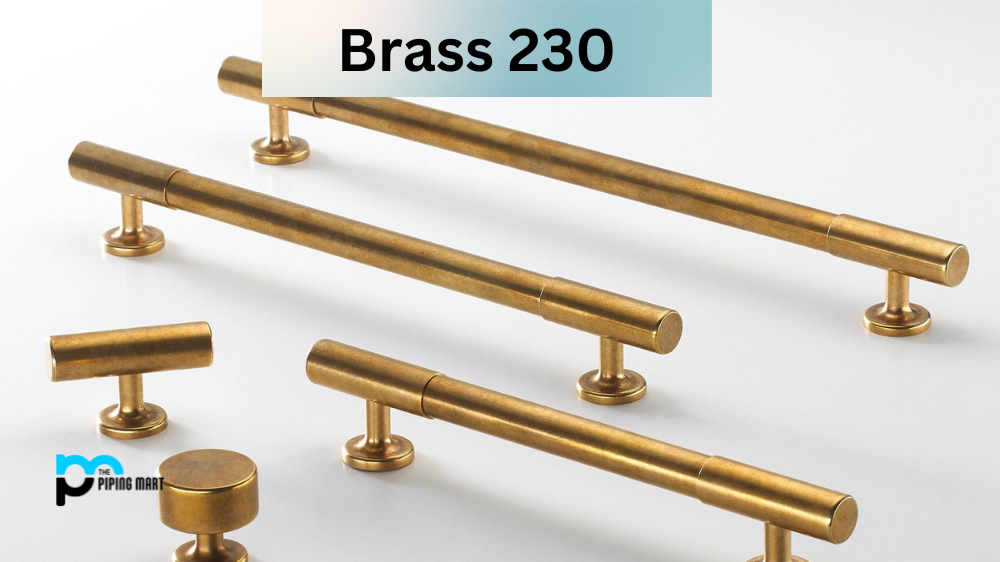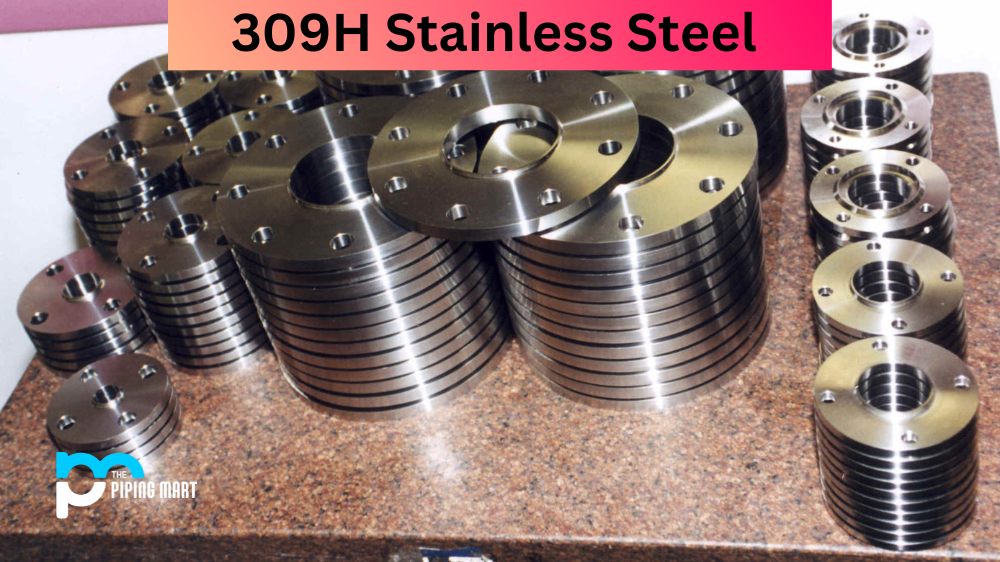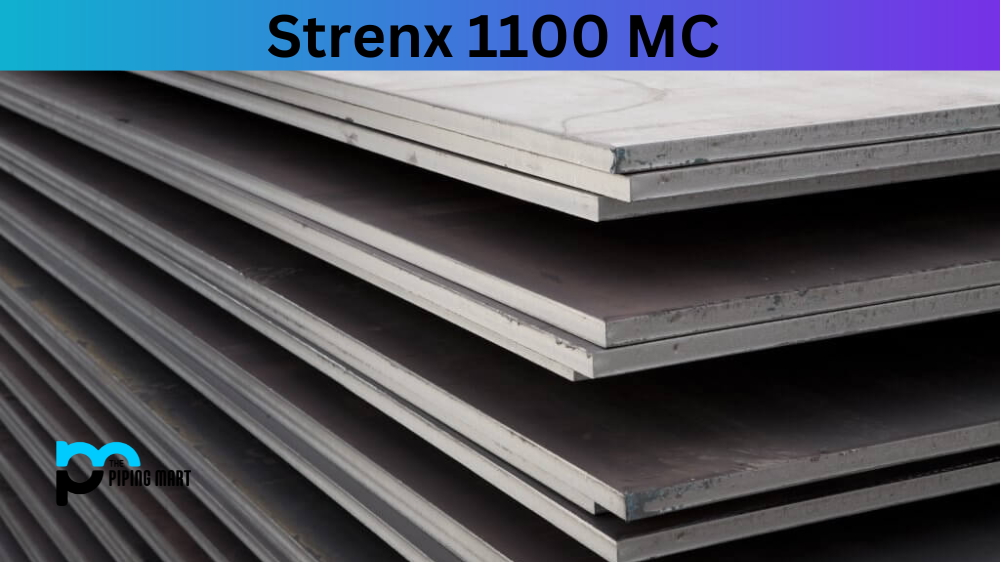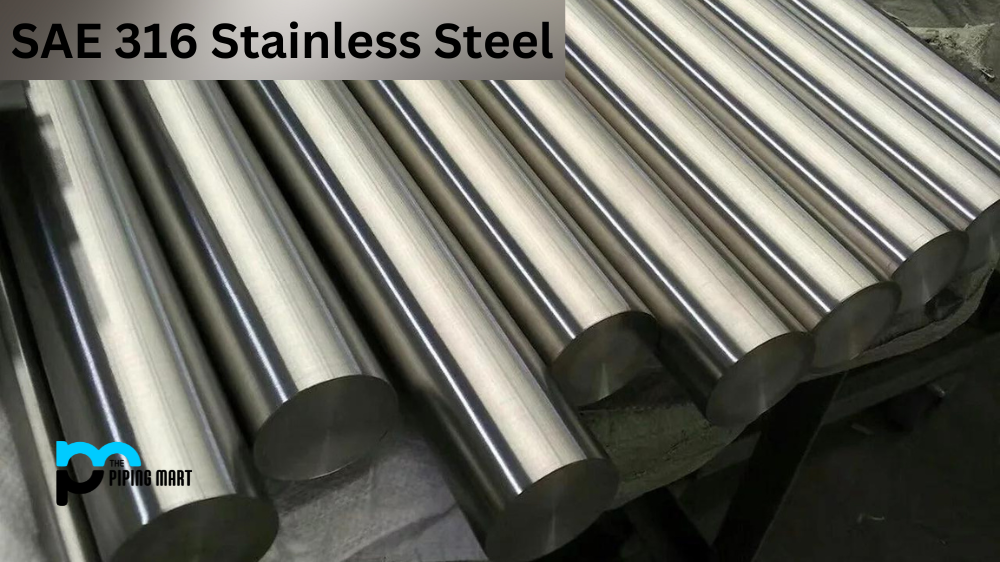What is Brass 230?
UNS C23000 is an alloy comprised of copper and zinc. It’s an incredibly versatile metal with many industrial and decorative applications. Its properties make it ideal for many electrical, engineering, and manufacturing industries. Let’s look at the benefits of using brass 230 in manufacturing.
What Forms is Brass 230 Available at Piping Mart?
- Brass 230 Nut
- Brass 230 Bar
- Brass 230 Bolt
- Brass 230 Pipe
- Brass 230 Screw
- Brass 230 Tubing
- Brass 230 Valves
- Brass 230 Washers
- Brass 230 Flanges
- Brass 230 Fasteners
- Brass 230 Sheet Plates
Brass 230 Chemical Composition
230 Brass is composed mainly of copper and zinc, which gives it excellent chemical resistance. It won’t corrode or rust easily when exposed to moisture or harsh chemicals like acids or bases. This makes it perfect for use in areas where corrosion could be problematic, such as marine environments or near corrosive liquids or gases.
| Chemistry Information | |
| Element | Percentage |
| Cu | 85 |
| Zn | 15 |
Brass 230 Physical Properties
UNS C23000 also has excellent physical properties, making it a great choice for industrial use. It has high tensile strength and hardness, making it strong enough to withstand heavy loads and wear and tear over time without breaking down quickly. 230 Brass malleability also makes it relatively easy to shape into complex components.
| Properties | Metric | Imperial |
|---|---|---|
| Melting point-liquidus | 1027°C | 1880°F |
| Melting point-solidus | 988°C | 1810°F |
| Density (@20°C/68°F) | 8.75 gm/cm3 | 0.316 lb/in3 |
230 Brass Mechanical Properties
| Properties | Metric | Imperial |
|---|---|---|
| Tensile strength | 269-724 MPa | 39-105 ksi |
| Yield strength | 69-434 MPa | 10-70 ksi |
| Elongation | 55% | 55% |
| Poisson’s ratio | 0.34 | 0.34 |
| Elastic modulus | 117 GPa | 16969 ksi |
Brass 230 Equivalent
| CDA | ASTM | SAE | AMS | Federal | Military | Other |
| C23000 | B927 B927M |
Brass 230 Specifications
| End Product | Specification |
| Brass 230 Bar | ASTM B36 |
| Brass 230 Fittings | ASME B16.29, B16.22 |
| Brass 230 Nipples | ASTM B687 |
| Brass 230 Pipe | ASME SB43, ASTM B698, B43 |
| Brass 230 Plate | ASTM B36 |
| Brass 230 Sheet | ASTM B36, SAE J461, J463 |
| Brass 230 Strip | ASTM B888, B36, SAE J463, J461 |
| Brass 230 Tube | ASTM B569, B698 |
| Brass 230 Tube, Brass 230 Condenser | ASME SB111, ASTM B111 |
| Brass 230 Tube, Brass 230 Finned | ASME SB359, ASTM B359 |
| Brass 230 Tube, Brass 230 Seamless | AMS 4553, ASME SB135, ASTM B135, FEDERAL WW-T-791, MILITARY MIL-T-20168, SAE J461, J463 |
| Brass 230 Tube, Brass 230 U-Bend | ASME SB395, ASTM B395 |
| Brass 230 Tube, Brass 230 Welded | ASME SB543, ASTM B587, B543 |
| Brass 230 Wire | ASTM B134 |
Brass 230 Applications
Brass UNS C23000 has many different applications in the manufacturing industry. It can manufacture components for cars and ships, aerospace parts and medical devices. It’s also used to make jewellery and other decorative items. Because of its versatility, it’s one of the most popular alloys used in modern manufacturing.
230 Brass Corrosion Resistance
One of the biggest benefits of brass 230 is its impressive corrosion resistance compared to other metals like steel or aluminium. This makes it ideal for use in areas with high humidity or salty air levels and areas prone to frequent exposure to water or other corrosive elements like oil or gasoline fumes.
Brass UNS C23000 Heat Treatment
Another benefit of brass 230 is that it can be heat-treated for increased strength or improved machinability. Heat treatment involves heating the alloy to certain temperatures before allowing it to cool down slowly under controlled conditions; this process changes the internal structure of the metal so that its mechanical properties can be tailored according to specific requirements while still maintaining its corrosion resistance qualities intact.
Conclusion
Brass 230 is an excellent metal alloy with many beneficial properties that make it ideal for various industrial applications across multiple industries, such as automotive, marine engineering, and medical device manufacturing. Its corrosion resistance qualities, high strength, and malleability make it perfect for creating complex components with relative ease while ensuring longevity against wear and tear over time due to its impressive heat treatment capabilities, too! If you’re looking for an affordable yet reliable metal alloy option for your next project, consider using Brass 230 today!

Pipingmart is a B2B portal that specializes in metal, industrial and piping items. Additionally, we share the latest information and information about materials, products and various types of grades to assist businesses that are involved in this business.




